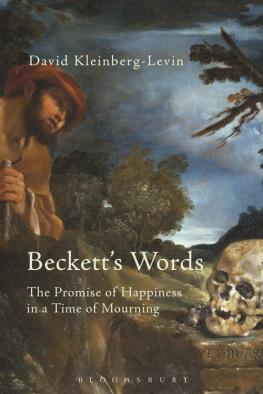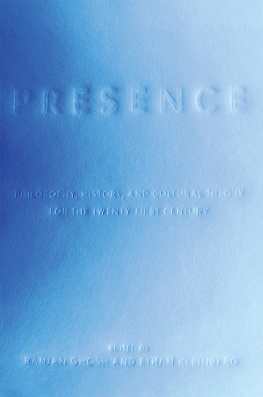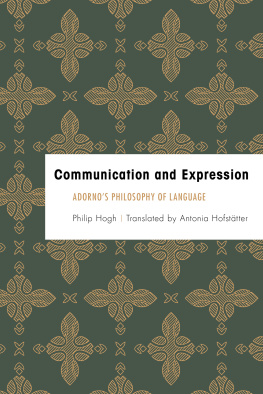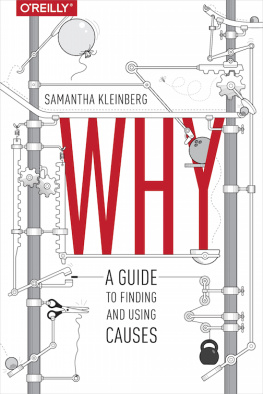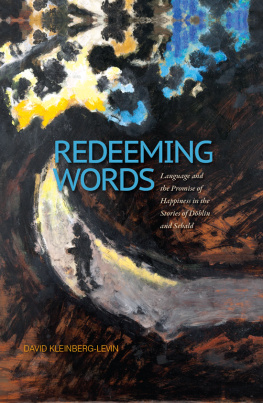The dog believes that his master is at the door. But can he also believe that his master will come the day after tomorrow? Can someone have hope only if able to talk? Only someone who has mastered the use of language. Situations of hoping are instances of this complicated form of life.
Ludwig Wittgenstein , Philosophical Investigations
Also available from Bloomsbury
Damned to Fame: The Life of Samuel Beckett, James Knowlson
Samuel Beckett: A Curated Life, Judith Wilkinson
The Dramatic Works of Samuel Beckett, Charles A. Carpenter

CONTENTS
I would like here to remember and acknowledge, with heartfelt thanks, a few friends with whom, since I began to contemplate writing something on Beckett, I have enjoyed conversations that have contributed in significant ways to making this present work a much better undertaking than it otherwise would have been. Hoping that my increasingly weak memory is not failing me, I wish in particular to thank Jay Bernstein, Gerald Bruns, Seamus Carey, William J. Earle, Doris Gahler, Robert Hullot-Kentor, Michael McGillen, Gregg Horowitz, John S. Rockwell, and David C. Wood. It should of course be understood that I alone am responsible for the words in this book.
I thank the Samuel Beckett Estate, Grove Atlantic, and Faber & Faber for permission to use textual material from Becketts published works. See the permissions page at the end of this volume.
For the cover image of Et in Arcadia Ego (16181622) by Giovanni Francesco Barbieri (Il Guercino), I thank the Soprintendenza Speciale per il Patrimonio Storico, Artistico ed Etnoantropologico e per il Polo Museale della Citt di Roma. This lovely painting, which I am very fond of, is on exhibit in the Galleria Nazionale dArte Antica, Palazzo Barberini, Rome.
The books cover
Only a part of the painting is shown on the cover of this volume. Not shown is the second, younger shepherd, whose gentle visage is lit up by the sun shining into the clearing. Also not shown is an owl, Minervas delegate, perched on the branch of a tree overlooking the skull. The skull that the two astonished shepherds encounter, evoking the lonely soliloquies of Becketts prose skullscapes, should remind us that, even in paradise, it is Death that writes the last sentence. The lower tree branch, gesturing on the right, minatory and ominous, suggests Deaths bony fingers, extending the justice of the word.
AT | Theodor Adorno, Aesthetic Theory , trans. Robert Hullot-Kentor (Minneapolis: University of Minnesota Press, 1997). |
C | Samuel Beckett, Company , in Nowhere On: Company, Ill Seen Ill Said, Worstward Ho (New York: Grove Press, 1996). |
H | Samuel Beckett, How It Is (New York: Grove Press, 1964). |
IS | Samuel Beckett, Il Seen Ill Said , in Nohow On , ed. S. E. Gontarski (New York: Grove Press, 1996). |
MD | Samuel Beckett, Malone Dies , in Samuel Beckett, Three Novels: Molloy, Malone Dies, The Unnamable (New York: Grove Press, n.d.). |
MO | Samuel Beckett, Molloy , in Samuel Beckett, Three Novels: Molloy, Malone Dies, The Unnamable (New York: Grove Press, n.d.). |
TN | Samuel Beckett, Texts for Nothing, in Stories and Texts for Nothing , trans. Samuel Beckett (New York: Grove Press, 1967). |
UN | Samuel Beckett, The Unnamable , in Samuel Beckett, Three Novels: Molloy, Malone Dies, The Unnamable (New York: Grove Press, n.d.). |
WG | Samuel Beckett, Waiting for Godot (New York: Grove Press, 1954). |
WH | Samuel Beckett, Worstward Ho , in Nohow On , ed. S. E. Gontarski (New York: Grove Press, 1996). |
WP | Friedrich Nietzsche, The Will to Power , trans. Walter Kaufmann (New York: Random House Vintage, 1967). |
PROLOGUE
Nothing But Words:
Words and Tears
And you have seen their fruitless longing, a longing that should have been fulfilled, but was given them [instead] for their eternal mourning.
DANTE ALIGHIERI, Purgatorio
Our age, says Kierkegaard, will Becketts works, at once tragic and comic in just this sense, are indeed works of and for our time.
In writing about Nietzsches words proclaiming that God is dead, Heidegger reflects that, When God dies as the metaphysical what language grants is the promise in the promise.
In an important reference to Beckett, Theodor Adorno also invokes the promisethat is, the promise of happiness, although he does not relate it explicitly, here, to the bearing of language as such:
Becketts ecce homo [dismantling the subject] is what has become of human beings. They look mutely out from his sentences as though with eyes
Adorno had little hope for the future; but the little that he could permit himself
But of course, art alone cannot redeem the world. Nor can philosophical thought. But there is, nevertheless, a need for philosophical thought, which must assume its proper responsibilitya responsibility that, in part, calls for it to sustain the promise of reconciliation borne by the work of art:
The only philosophy which can be responsibly practiced in face of despair is the attempt to contemplate all things as they would present themselves from the standpoint of redemption.
In writing this present volume of philosophical criticism on Becketts literary works, I am attempting, in keeping with Adornos persistent exhortations, to continue the articulation of this urgent undertaking. My claim is that, with just one exception, namely The Lost Ones , a horrifying evocation of the gas chambers in Auschwitz-Birkenau, even in the darkest of Becketts plays and stories, the light of this redemption, weak though it is, can occasionally be glimpsed.
How can literatures words bear the promise of happiness for the spirit of our time, a time of immeasurable loss and mourning? Mourning: not only over the death of God with all that means for our moral, spiritual and epistemic confidence, consolation, reassurance, and peace of mind, but also over the remoteness, still,
There is a phrase in The Unnamable (19491953) that expresses in sublimely condensed form what I think compelled Beckett to write: the little murmur of unconsenting man, to murmur what it is their humanity stifles. I shall situate Becketts storytelling in the context of modernist aesthetics, literary innovation, and the phenomenology of language; and I will show, taking us into the realm of political theology, how Becketts ways of using words relate to questions of faith and hope in the terrestrial fulfillment of the promise of justice essential for the sharing of happiness in ethical life.
In his Theologico-Political
*
After attending recently a performance of some extremely short Beckett plays, a fragment of an imagined conversation erupted into consciousness from the depths of my mind, just as I was crossing into sleep:
Its not easy being human.
Dont worry. Youll get over it!
Becketts comedies work as morality plays, simultaneously generating social critique and utopian imagination; however, although they provide moments of superficial amusement, doubt with Beckett in mind, suggests how we might understand that subsequent remark by Deleuze. For Adorno: The legacy of the sublime is unassuaged negativity, as stark and illusionless as was once promised by the semblance of the sublime. This is at the same time the legacy of the comic (AT 199).
Next page
